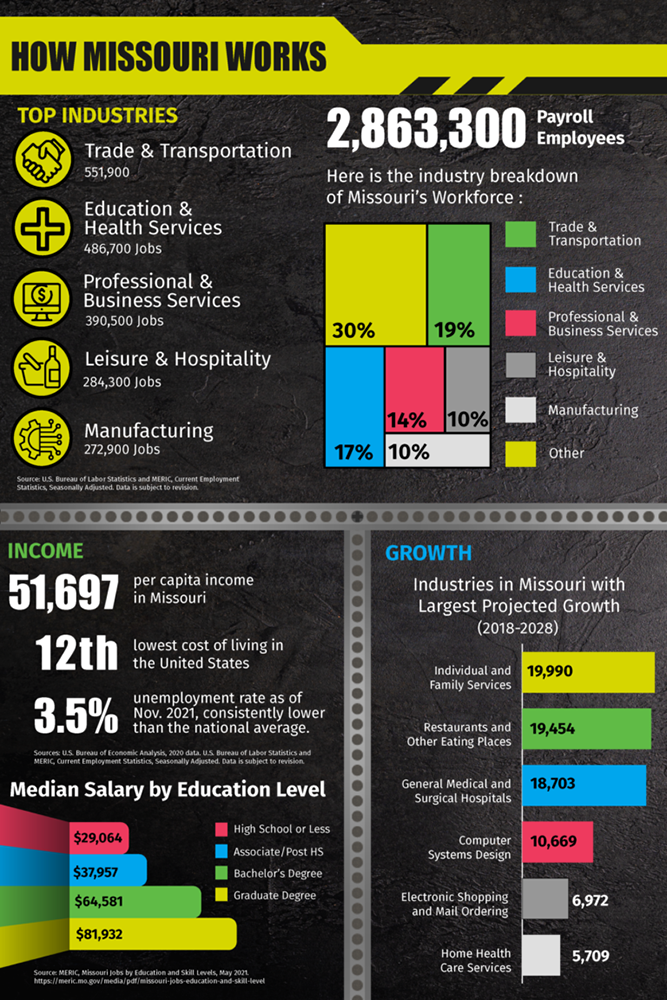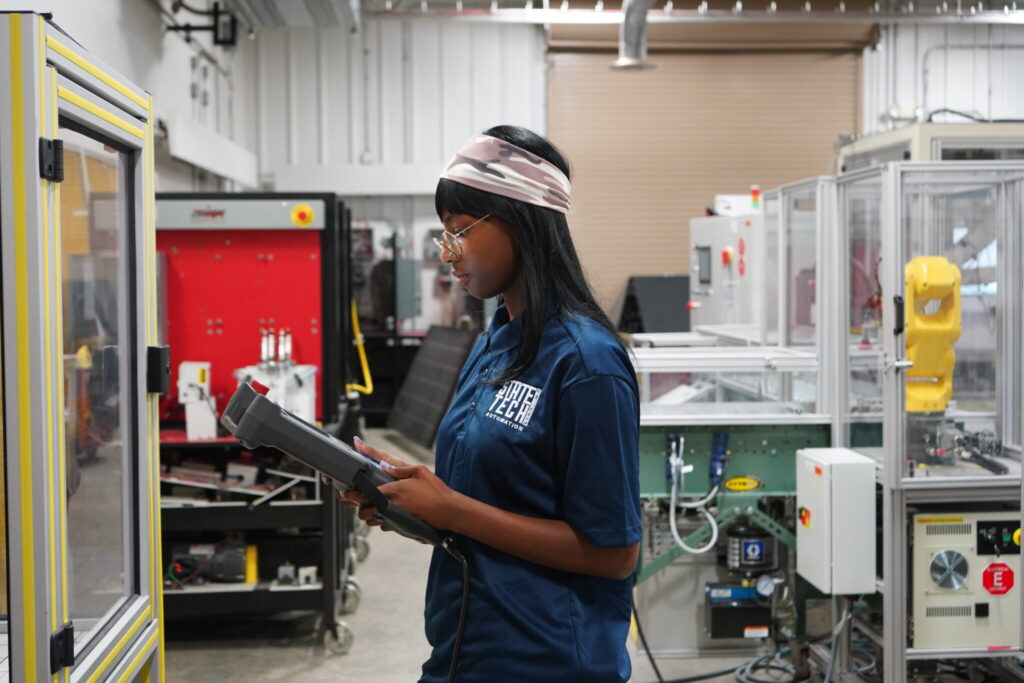The ACT is important to high school students in Missouri and across the U.S. for several reasons. It is an important factor that is considered in college admissions and how scholarships are awarded. It can help students become eligible for the A+ Scholarship and in some parts of the state it is a requirement to graduate. While the level of importance can differ among students, based on their plans, it is a tough challenge for everyone their first time. Students take timed tests in multiple subjects, answering questions that can confuse them or make them second guess themselves.
This is the second article of a four-part series on the ACT test, from Journey to College, describing each of the subject tests and how to prepare for them. In this article, the math section of the test is the subject of discussion.

The basics of the math test
Of all the subject tests, the math portion is the most straightforward. In an hour, you answer 60 problems. The questions get more difficult as you go, meaning the first question is the easiest and the last question is the most difficult. It mainly covers concepts from algebra and geometry. The last 20 questions pull from more advanced topics, such as trigonometry, pre-calculus, and calculus.
 How do I prepare for the test?
How do I prepare for the test?
The ACT publishes a test breakdown, which describes how much of the test is focused on one topic (modeling, preparing for higher math, etc.). In each topic, it is further broken down into certain types of questioning. For example, about 8-12 percent of the test will cover statistics and probability questions.
To help students prepare for the test, the ACT also provides old versions of the test online and in print. Ask your counselor if they have copies of old booklets so you can take practice tests and time yourself.
How is the test graded?
 The ACT has released its scoring rubric so you can know ahead of time what to expect. This is very helpful for students who are aiming for a specific score, such as those aiming to earn the A+ Scholarship. Students who didn’t score proficient or advanced on their Algebra 1 end-of-course exam can substitute an ACT math score to qualify. Depending on your GPA, this score can change. The same is true for students trying to earn scholarships from a university, especially with the superscore option now available.
The ACT has released its scoring rubric so you can know ahead of time what to expect. This is very helpful for students who are aiming for a specific score, such as those aiming to earn the A+ Scholarship. Students who didn’t score proficient or advanced on their Algebra 1 end-of-course exam can substitute an ACT math score to qualify. Depending on your GPA, this score can change. The same is true for students trying to earn scholarships from a university, especially with the superscore option now available.
Final thoughts
The math section of the ACT is meant to demonstrate the depth of your knowledge in the subject. You either know the material or you don’t. And that is OK. Every student will bring a different level of expertise, as well as a different desire, whether you are aiming for top marks and the Bright Flight scholarship, or just trying to make a certain threshold for A+. Remember, preparation is key.

 How do I prepare for the test?
How do I prepare for the test? Final thoughts
Final thoughts Many professions, such as law or medicine, will require some graduate coursework before you can even apply for the job. If you chose one of those as your major, you probably already knew those requirements.
Many professions, such as law or medicine, will require some graduate coursework before you can even apply for the job. If you chose one of those as your major, you probably already knew those requirements. 1. Opportunities for Your Major – Every college has a connection with their local area that includes partnerships and research opportunities. They often build good relationships in the community because those who partner with the campus can hire new talent from recent graduates. Therefore, many major programs will have information about offers exclusive to your academic discipline. Get in contact with your department head to see what opportunities they may have available to you.
1. Opportunities for Your Major – Every college has a connection with their local area that includes partnerships and research opportunities. They often build good relationships in the community because those who partner with the campus can hire new talent from recent graduates. Therefore, many major programs will have information about offers exclusive to your academic discipline. Get in contact with your department head to see what opportunities they may have available to you. 3. Attend a Career Fair – The career center will go above and beyond to help you prepare for what to do when you are applying for positions. They will also help with the hardest part, finding the companies that are hiring. Every year, companies will flock to college campuses in search of new talent to recruit either for internships or for job opportunities after graduation. Attending these is an essential step in preparing for the workforce after college. Many companies will stay and do first rounds of interviews based on the resumes that they receive. Keeping that in mind, you should check for a list of companies that were invited and prepare copies of your resume to hand out. Bigger universities will also have industry specific fairs or online job fairs, so check to see what your campus has to offer.
3. Attend a Career Fair – The career center will go above and beyond to help you prepare for what to do when you are applying for positions. They will also help with the hardest part, finding the companies that are hiring. Every year, companies will flock to college campuses in search of new talent to recruit either for internships or for job opportunities after graduation. Attending these is an essential step in preparing for the workforce after college. Many companies will stay and do first rounds of interviews based on the resumes that they receive. Keeping that in mind, you should check for a list of companies that were invited and prepare copies of your resume to hand out. Bigger universities will also have industry specific fairs or online job fairs, so check to see what your campus has to offer. If you are planning to stay in the U.S., there are similar ways to serve through AmeriCorps programs or through fellowships that target underserved communities.
If you are planning to stay in the U.S., there are similar ways to serve through AmeriCorps programs or through fellowships that target underserved communities. There are many benefits to advanced degrees. Increased earnings, switching careers, and even personal goals can be a part of the decision to pursue a master’s degree or higher. To truly make the smartest choice you should factor in everything that you can. The primary benefit of a graduate education is very specialized knowledge that can benefit you or your career path. This can be as simple as a school principal versus elementary teacher. It can also be very specific like choosing a course that uses a unique coding program for one sole purpose. Take inventory of what your goals and needs are, then look at what various schools can provide you. Course listings are provided that give a synopsis of each course offered.
There are many benefits to advanced degrees. Increased earnings, switching careers, and even personal goals can be a part of the decision to pursue a master’s degree or higher. To truly make the smartest choice you should factor in everything that you can. The primary benefit of a graduate education is very specialized knowledge that can benefit you or your career path. This can be as simple as a school principal versus elementary teacher. It can also be very specific like choosing a course that uses a unique coding program for one sole purpose. Take inventory of what your goals and needs are, then look at what various schools can provide you. Course listings are provided that give a synopsis of each course offered.
 Additionally, while scholarships and grants for pursuing a graduate degree are available, there aren’t many of them, so financial decisions should be part of the process.
Additionally, while scholarships and grants for pursuing a graduate degree are available, there aren’t many of them, so financial decisions should be part of the process.







 Colleges have budgets dedicated to promotion and advertising. Do not feel bashful in asking if they have anything to offer you on your visit. This could be a free shirt or pennant, a discount to the school store, free food in the dining hall, or waiving your application fee if you apply that day. They want you to enjoy your day just as much as you do, so don’t be afraid to see what they can offer.
Colleges have budgets dedicated to promotion and advertising. Do not feel bashful in asking if they have anything to offer you on your visit. This could be a free shirt or pennant, a discount to the school store, free food in the dining hall, or waiving your application fee if you apply that day. They want you to enjoy your day just as much as you do, so don’t be afraid to see what they can offer.








 Missouri ranks No.4 in the nation in opportunity for its citizens, according to USnews.com. Missouri is a great place to start or own a business, boasting a rank of 11 in the country. Missouri’s businesses weathered the pandemic better than most and the state was ranked third in the nation for pandemic proof small businesses.
Missouri ranks No.4 in the nation in opportunity for its citizens, according to USnews.com. Missouri is a great place to start or own a business, boasting a rank of 11 in the country. Missouri’s businesses weathered the pandemic better than most and the state was ranked third in the nation for pandemic proof small businesses.